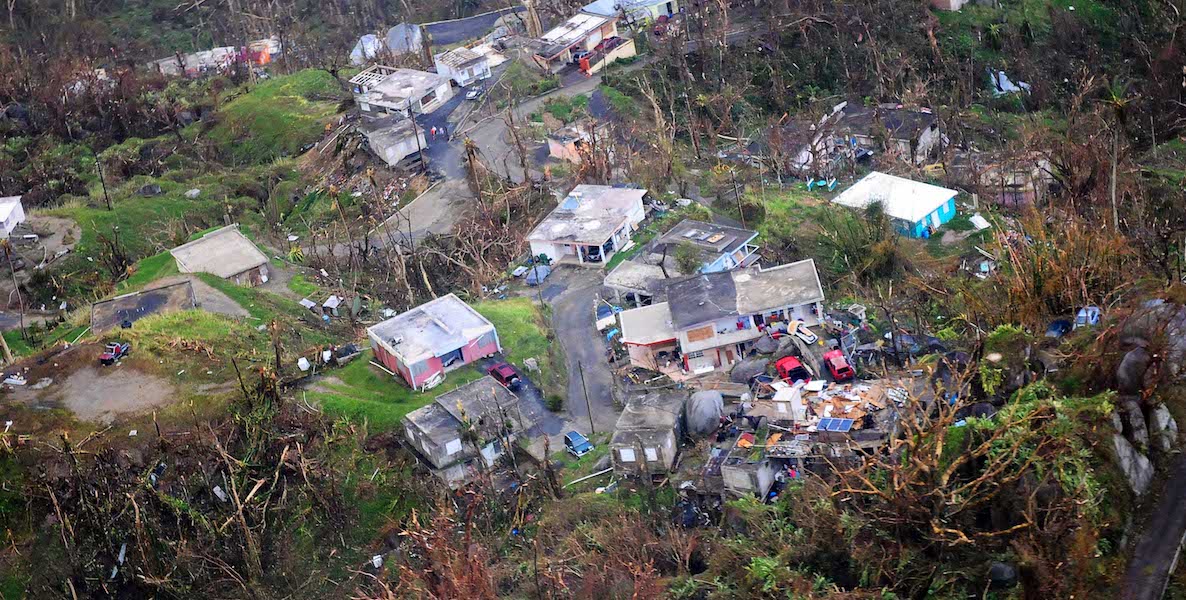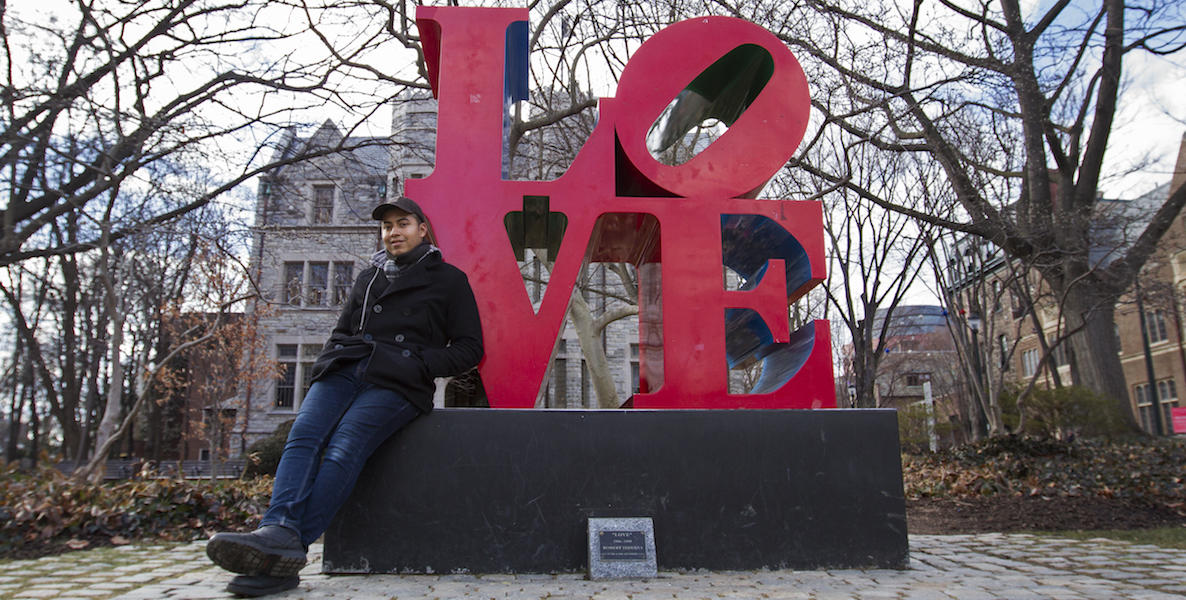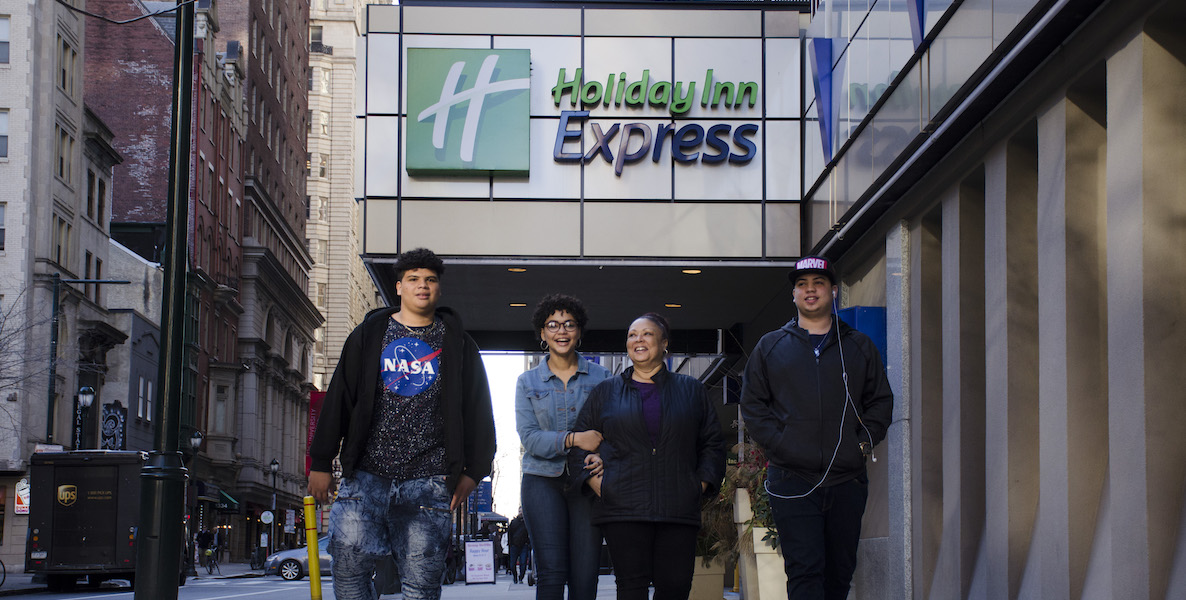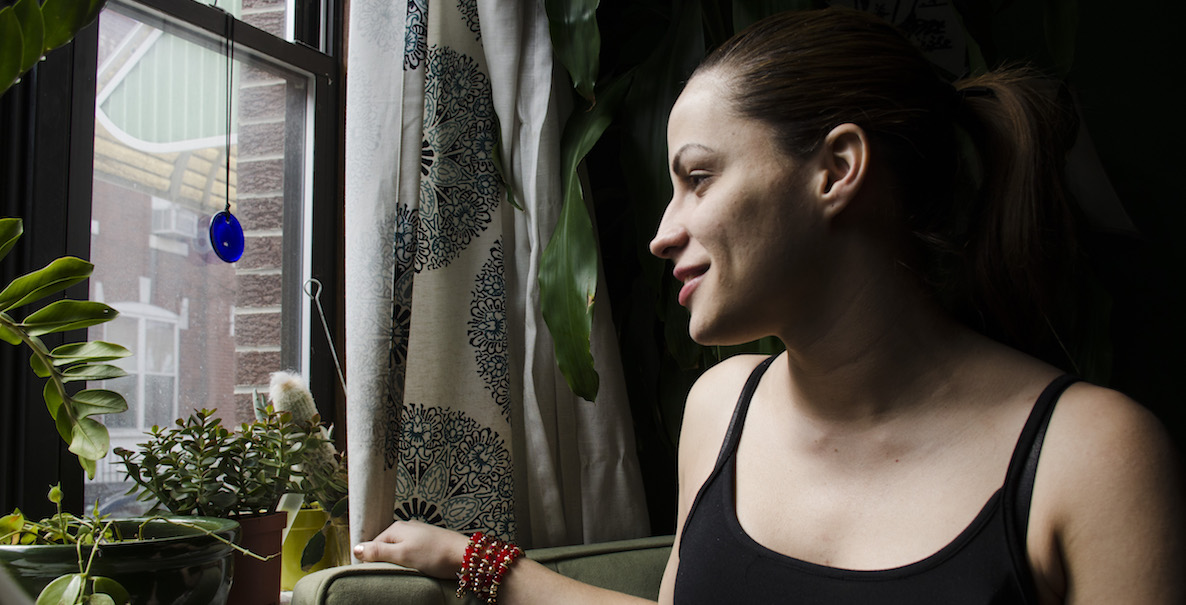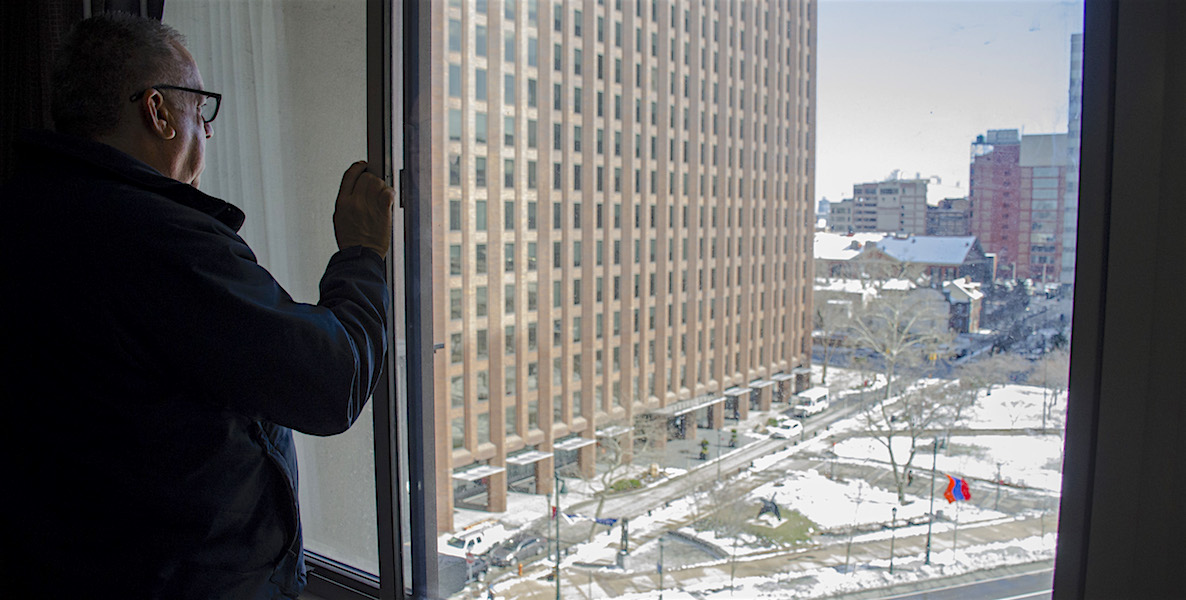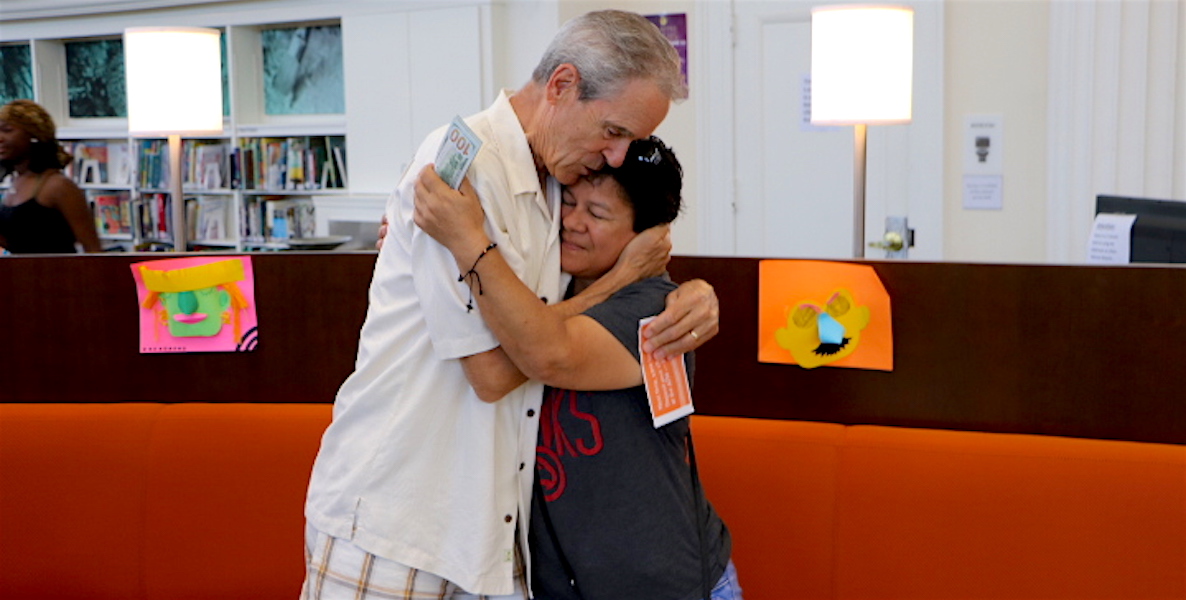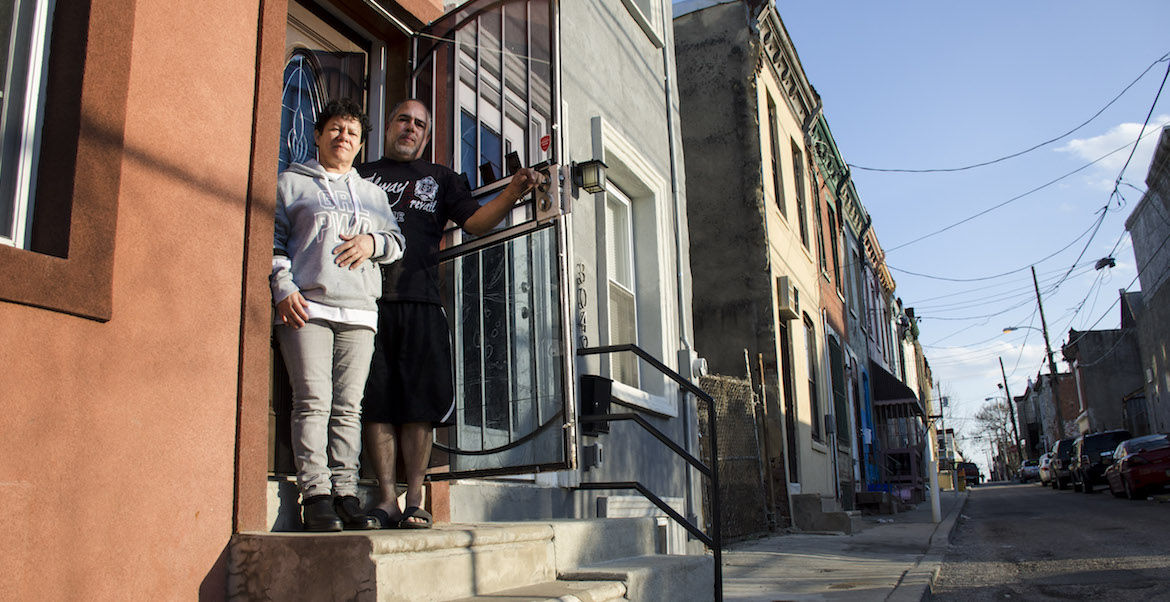George Boyd, a 75 year old retired office administrator from Plymouth Meeting, spends his post-retirement free time taking care of his 31 grandchildren. “I pick them up at school, I take them everywhere, anywhere they want,” Boyd laughs. “I once took 40 of us down to Disney.”
But Boyd’s generosity extends far beyond his closest circles.
Over the last two decades, he has helped build around 15 to 20 houses in Nicaragua. He volunteers at his local church, collects materials for his daughter’s Philly public school classroom, coordinates many of Plymouth Meeting’s athletic activities, and helps out at the home for dementia where his aunt lived the last years of her life. In November, he’s landing in Rapid City to work with a struggling orphanage in South Dakota.
“You give what you get in return. And I swear, every time you do something, you get it back,” Boyd says.
Years of saving money have given Boyd the means to do small acts of charity. He stumbles across need and tries to fill the gaping holes it makes in people’s lives.
“I grew up pretty poor, sharing a bedroom with seven of my brothers and a house with my parents and two other sisters,” Boyd says. As an adult, he had seven children with Vivian, his wife of 54 years. “I just love life, and I want to make others happy. You give what you get in return. And I swear, every time you do something, you get it back.”
![]()
When he was younger, Boyd spent three winters in a row in Puerto Rico, where he fell in love with the resiliency of Puerto Ricans. “Despite everything, they carry on,” he muses. He never forgot his love affair with the island, and was heartbroken by the catastrophe Hurricane Maria unleashed last September, from which Puerto Rico has still not recovered.
At least 4,645 people died during or after the storm in Puerto Rico, and another six percent of the population has left, with more than 900 families landing in Philadelphia. Those evacuees lost life as they knew it, and have often relied on the largesse of Philadelphians, who’ve organized short-term relief fundraisers, pushed FEMA to extend their transitional housing policies to keep evacuees’ in hotel rooms, offered translation assistance, legal counsel, winter clothes.
Boyd knew he had to help too. “The way that Puerto Ricans have been treated by our country, it made my heart very sad. That’s why I want to reverse that,” he says. He found his chance in the spring, when he read about the Cabrera family, evacuees I wrote about in The Citizen as part of our Voices of Maria series.
Irma, Jurabe, and their teenage children Alexis and Alejandra have been living in a cramped basement since November, unable to leave because of money and language barriers. Jurabe works at a U-Haul, but the wages are too low to rent a place that fits the whole family. Irma spends her days walking around North Philadelphia looking for apartments. Alexis and Alejandra enrolled in a historically Puerto Rican public school, but have struggled to keep up academically since they are not fluent in English.
The story hit home for Boyd. “I was moved by the fact [Irma] walked so much to find a home her feet were swollen, and that they were living in a basement,” he says. “I just saw that picture and kept reading it over and over again. I thought: I can make the rent happen.”
“I was moved by the fact [Irma] walked so much to find a home her feet were swollen,” he says. “I thought: I can make the rent happen.”
In May, Boyd reached out to The Citizen, with a generous offer: He wanted to pay for the Cabrera’s security deposit and first and last rent. That pledge allowed Irma Cabrera to apply for Philadelphia public housing. Last week, when she was put on the housing list, I met her and Boyd at the Lillian Marrero Library, an epicenter of support for evacuees and the Puerto Rican community in the city.
Boyd looked like a quintessential grandpa with his brown, plaid shorts, and beaming smile. He came to meet Cabrera with his two daughters, one of whom is a public school teacher who offered to help her navigate the Philly school district. Cabrera came alone; Jurabe was at work and Alexis and Alejandra were home, bored and hot in their 95 degree basement room.
![]()
I served as a clumsy interpreter between both parties. Cabrera speaks little English. Boyd and his daughters speak no Spanish. Cabrera talked to them about life back home in Puerto Rico, her children, her experiences with SEPTA. She shared her hopes about her new life in Philadelphia. “Once we can get out of that basement,” she said, “things can get better. But it’s hard.”
Even without speaking each other’s languages, Boyd understood her needs, and Cabrera his willingness to help. “That someone I don’t know provided us with help, I will always be grateful,” Cabrera says. “And I wish them the best.”
Cabrera and her family receive a super preference in PHA’s selection process as FEMA-referred survivors of a natural disaster, but it might take a few weeks or months before they are placed in housing. Without Boyd’s help, though, even getting this far would be impossible. At the end of their meeting at the library, Boyd gave Cabrera the money needed for an initial housing deposit with PHA, around $700. Her also gave about $500 for her and her husband, and in Walmart gift cards for Alexis and Alejandra.
Boyd hopes to keep in touch with the Cabreras, and help them move in once they have a home. “I can paint, and the electrical work my son-in-law can do,” he beams, “and my friend’s a carpenter. So we can do it.” His wife also has her own set of plans: “I would love to see the family, and get them a tree for Christmas,” Vivian says.
Photo via Colin Lodewick

